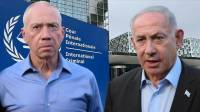

Hezbollah announced on Saturday that it launched dozens of rockets at Israel, escalating tensions in the Middle East. The attack comes as Iran and its allies prepare their response to the killing of Hamas's political chief, Ismail Haniyeh, in Tehran earlier this week. Amid fears of a broader regional conflict, US President Joe Biden expressed hope that Iran would "stand down" despite its threats to retaliate against Israel.
Hezbollah claimed its rocket attack on Moshav Beit Hillel in Israel resulted in civilian injuries. The group stated that the attack was in retaliation for Israeli strikes on Kfar Kela and Deir Siriane in Lebanon and an Israeli airstrike in Beirut that killed Fuad Shukr, a senior Hezbollah military commander. However, international media reported no casualties from the Hezbollah attack.
Three US and Israeli officials suggested that Iran might strike Israel as soon as Monday, according to an Axios report. In response, the US embassy in Lebanon advised American citizens to leave the country "on any ticket available" due to fears of a potential conflict between Israel and Hezbollah. Despite flight suspensions and cancellations, the embassy emphasized that commercial travel options are still available.
Similarly, the UK government urged its citizens in Lebanon to leave immediately. Foreign Minister David Lammy warned that "tensions are high, and the situation could deteriorate rapidly," urging British nationals to depart the country while commercial flights are still available. The UK Foreign Office announced it was deploying additional consular and military personnel to the region to assist British citizens.












